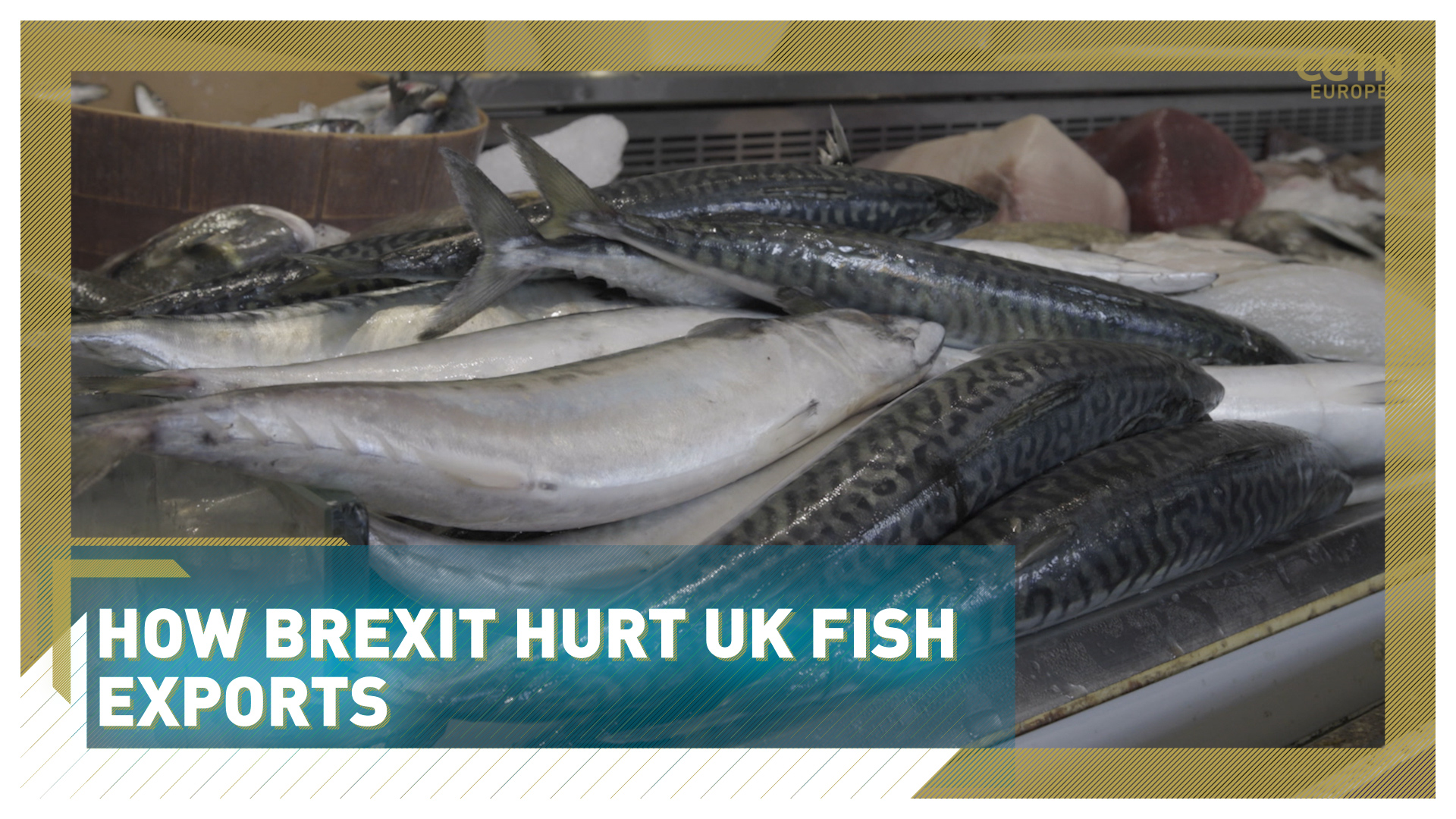02:55

Fishing communities throughout the UK voted in large numbers to leave the European Union, only to find that red tape, hygiene requirements and additional costs left them struggling to export their catches to Europe.
Just before dawn at Newlyn harbor, a local trawler returns after six days at sea and starts unloading several tons of pilchards.
Before the UK left the EU, these fish would go straight onto refrigerated lorries, driven to the nearest ferry crossing and arrive within hours at local markets in France.
With 80 percent of all the fish caught at Newlyn going for export, the vast majority of it to France, there were fears that all the extra red tape and costs could kill the industry.
The Cornish port of Newlyn in the southwest of England is one of the nation's major fishing ports. More than 600 vessels land up to 40 different species of fresh fish each day, including hake, turbot, mackerel and pilchards, as well as scallops, crawfish and crabs.
READ MORE
Russia's royal wedding
Tracking La Palma's lava trail
Ireland's firefighting goats
After the first month of Brexit with all its extra paperwork, it looked as if their worst nightmares might come true. Fish exports to the EU fell by an enormous 83 percent in January 2020. By the end of the year, though, the problem had eased. The latest government figures for 2020 show that Britain exported more than $2 billion of fish. That was down by 20 percent compared with the previous year and the lowest for five years.
Rob Parsons is the harbor master at Newlyn and is hopeful the worst may be over.
"It has been a perfect storm. We were afraid of Brexit, that it was going to cause us issues with our exports. Then COVID-19 hit and we saw a marked reduction in prices. But now the prices have recovered somewhat. That doesn't mean we are out of the water, out of the storm, but I would say we are on the up." Parsons told CGTN Europe.
Fish sales started to recover after the local authority provided health inspectors to help with export certificates, though the process is slower and more expensive.

Pilchards, now branded as Cornish sardines, no longer arrive in French markets on the same day. /Michael Voss/CGTN
Pilchards, now branded as Cornish sardines, no longer arrive in French markets on the same day. /Michael Voss/CGTN
Stabbed in the back
One of the major selling points of Brexit was that it would limit access to foreign trawlers and increase quotas for the UK industry. In the end, only minor changes took place, phased in over five years.
Skipper Paul Corin voted for Brexit. Now he feels betrayed and has had to sell his family-owned trawler to keep the business alive.
"The exports improved after Brexit with a lot of hard work from people, but the increase in quota that we were promised just didn't materialize. This was a family boat, but we had to sell to a bigger company. We just didn't have enough quota to keep the vessel running and make a profit," Corin explained.
"I think we were all stabbed in the back, we were promised lots of stuff and it hasn't materialized and it's not going to materialize," he added.

Newlyn has one of the largest independent fishing fleets in the UK. /Michael Voss/CGTN
Newlyn has one of the largest independent fishing fleets in the UK. /Michael Voss/CGTN
Getting the British to eat more fish
Boosting domestic sales is seen as another post-Brexit priority.
The UK is an island nation surrounded by rich fishing waters, but apart from fish and chips, we don't eat much fish and much of what we do eat is imported.
A public relations company was hired to rebrand some of the catches to make them more appealing, such as renaming spider crabs as Cornish king crabs.
Craig Tonkin is a Newlyn fishmonger who also sells online. Before Brexit, around 80 percent of his sales were for export. COVID-19 lockdowns helped push up domestic sales as many people avoided going to the shops, preferring to buy online instead. But Tonkin believes that rebranding has also helped half his sales go straight to UK customers.
Inside his shop, situated directly across the road from the harbor, he showed examples of what has changed.
"These used to be known as pilchards and are now called Cornish sardines, and we sell a lot of those in the UK," he pointed out with pride.
Then he lifted a megrim sole, which most people in the country had ever heard of, let alone eaten.
"We used to send 95 percent of these to Spain. Now they have been rebranded as Cornish soles and we sell a lot of those in the UK as well," Tonkin added.
But for the Newlyn fishermen, exports remain their lifeblood. The worst of their problems may be over but many are still struggling to survive.
Video editing: Phil Caller
Cover image:/CGTN Europe

